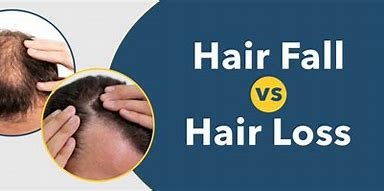Hair fall refers to the natural process of shedding hair from the scalp. On average, it’s normal to lose about 50-100 hairs a day. This type of hair fall is a regular part of the hair growth cycle,

- Anagen (Growth Phase): Hair actively grows for about 2-6 years.
- Catagen (Transitional Phase): Hair stops growing and detaches from the blood supply, lasting around 2-3 weeks.
- Telogen (Resting Phase): The hair follicle is not actively growing, and the hair eventually falls out. This phase lasts for about 3 months.
Common Causes of Hair Fall:
- Hormonal Changes: Pregnancy, menopause, or conditions like polycystic ovary syndrome (PCOS) can lead to temporary hair fall.
- Stress: Physical or emotional stress can trigger telogen effluvium, a condition where more hairs enter the shedding phase.
- Seasonal Changes: Some people experience more hair shedding during certain seasons, often in the fall or winter.
- Dietary Deficiencies: Lack of essential nutrients, such as iron, zinc, or vitamins, can contribute to hair fall.
- Hair Care Practices: Overusing heat styling tools, chemical treatments, or tight hairstyles (like ponytails) can cause hair fall.
- Medications: Certain medications, including birth control pills, antidepressants, and chemotherapy drugs, can cause hair shedding.
- Aging: As people age, hair growth slows down, and hair thinning or shedding may increase.
Tips to Manage Hair Fall:
- Maintain a Healthy Diet: Ensure you get sufficient vitamins and minerals, particularly iron, vitamin D, and biotin.
- Avoid Stress: Practice relaxation techniques such as yoga, meditation, or regular exercise.
- Gentle Hair Care: Avoid harsh treatments, excessive brushing, and tight hairstyles.
- Scalp Care: Keep your scalp clean and consider gentle massages to stimulate hair follicles.
- Consult a Dermatologist: If the hair fall is excessive or persistent, it’s a good idea to seek professional advice to rule out any underlying conditions.
